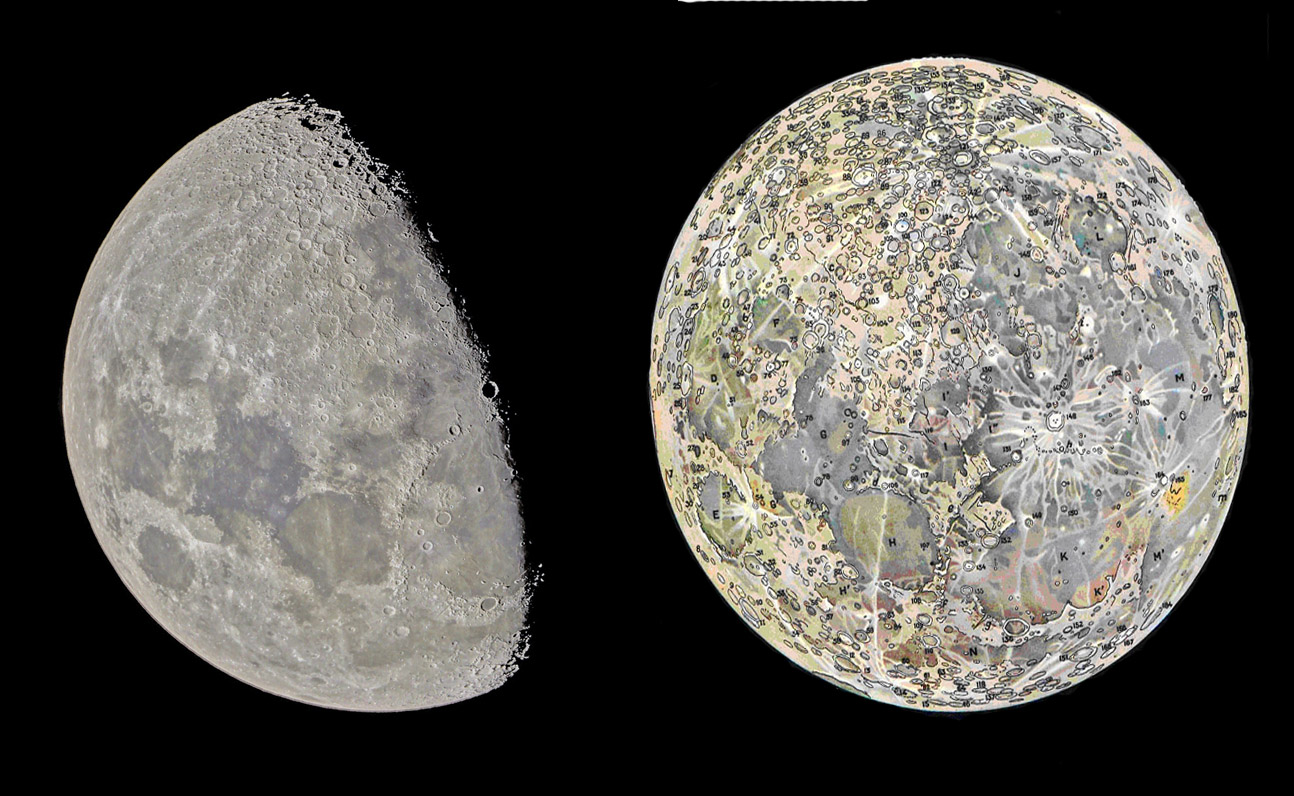Difference between revisions of "February 24, 2013"
| Line 3: | Line 3: | ||
<!-- ws:start:WikiTextHeadingRule:0:<h1> --> | <!-- ws:start:WikiTextHeadingRule:0:<h1> --> | ||
<!-- ws:start:WikiTextLocalImageRule:6:<img src="/file/view/LPOD-Feb24-13.jpg/409421462/LPOD-Feb24-13.jpg" alt="" title="" /> -->[[File:LPOD-Feb24-13.jpg|LPOD-Feb24-13.jpg]]<!-- ws:end:WikiTextLocalImageRule:6 --><br /> | <!-- ws:start:WikiTextLocalImageRule:6:<img src="/file/view/LPOD-Feb24-13.jpg/409421462/LPOD-Feb24-13.jpg" alt="" title="" /> -->[[File:LPOD-Feb24-13.jpg|LPOD-Feb24-13.jpg]]<!-- ws:end:WikiTextLocalImageRule:6 --><br /> | ||
| − | <em>left image by [mailto:tosi.philippe@wanadoo.fr | + | <em>left image by [mailto:tosi.philippe@wanadoo.fr Philippe Tosi], and right from Larouse Encyclopedia of Astronomy</em><br /> |
<br /> | <br /> | ||
As soon as I saw Phillipe's delicate pastel image I immediately thought of Lucien Rudaux' map of lunar colors. <br /> | As soon as I saw Phillipe's delicate pastel image I immediately thought of Lucien Rudaux' map of lunar colors. <br /> | ||
| − | The map appears in the 1967 volume, <em>Larouse Encyclopedia of Astronomy</em> and is also [http://www.mikeoates.org/mas/projects/mooncolour/intro.htm#1 | + | The map appears in the 1967 volume, <em>Larouse Encyclopedia of Astronomy</em> and is also [http://www.mikeoates.org/mas/projects/mooncolour/intro.htm#1 online]; the earliest <br /> |
| − | version I've seen is from [http://www.amazon.com/Print-Lucien-Rudaux-Lunar-Landscape/dp/B005DH3QHY | + | version I've seen is from [http://www.amazon.com/Print-Lucien-Rudaux-Lunar-Landscape/dp/B005DH3QHY 1928]. Rudaux, like today's Bill Hartmann, was an astronomer as well as a talented <br /> |
artist. He apparently had extremely sensitive color vision for his map depicted hues that are remarkably con-<br /> | artist. He apparently had extremely sensitive color vision for his map depicted hues that are remarkably con-<br /> | ||
sistent with modern color saturated images - see for example the details along the western edge of Mare Seren-<br /> | sistent with modern color saturated images - see for example the details along the western edge of Mare Seren-<br /> | ||
| Line 14: | Line 14: | ||
area on Phillipe's image that the color momentarily seems more conspicuous.<br /> | area on Phillipe's image that the color momentarily seems more conspicuous.<br /> | ||
<br /> | <br /> | ||
| − | <em>[mailto:tychocrater@yahoo.com | + | <em>[mailto:tychocrater@yahoo.com Chuck Wood]</em><br /> |
<br /> | <br /> | ||
<strong>Technical Details</strong><br /> | <strong>Technical Details</strong><br /> | ||
Revision as of 18:01, 11 January 2015
Camouflage Moon

left image by Philippe Tosi, and right from Larouse Encyclopedia of Astronomy
As soon as I saw Phillipe's delicate pastel image I immediately thought of Lucien Rudaux' map of lunar colors.
The map appears in the 1967 volume, Larouse Encyclopedia of Astronomy and is also online; the earliest
version I've seen is from 1928. Rudaux, like today's Bill Hartmann, was an astronomer as well as a talented
artist. He apparently had extremely sensitive color vision for his map depicted hues that are remarkably con-
sistent with modern color saturated images - see for example the details along the western edge of Mare Seren-
itatis. Radaux' most intense color is the Aristarchus Plateau, which even I once saw with a mustard hue. It must
be some trick of the eye but I find that if I look closely at Rudaux's map and then switch quickly to the same
area on Phillipe's image that the color momentarily seems more conspicuous.
Chuck Wood
Technical Details
Self made newton 410mm F/5.6 + eos 5DMII. Exposures: 1/100; 1/200; 1/400; 1/800; 1/1600; 1/3200; 1/6400 sec;
process by photomatix 4.2 pro developed by HDRsoft (fusion of exposures)



